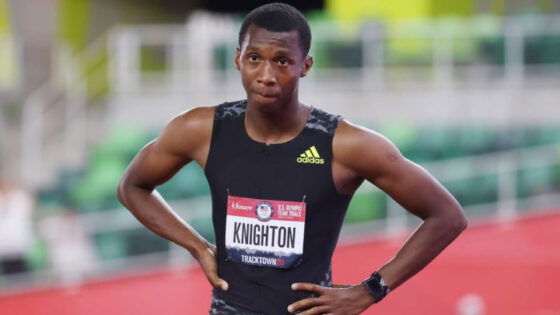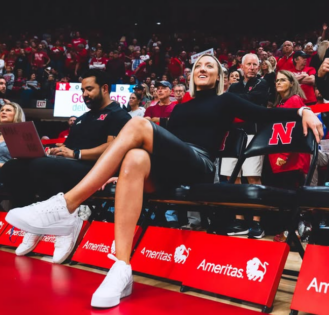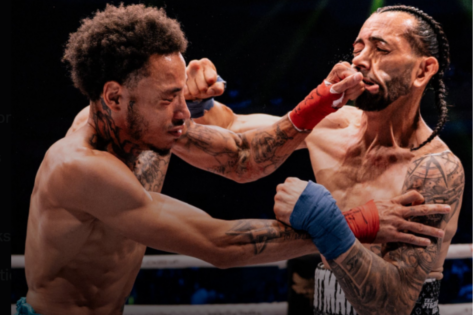Imagine being just 21 years old, a two-time Olympic finalist, and suddenly facing a doping ban that could completely derail your promising career. That’s exactly what U.S. sprinter Erriyon Knighton is going through. In March 2024, he tested positive for trenbolone, a steroid typically used in livestock, throwing him into a legal nightmare.
Initially, a U.S. tribunal cleared his name, agreeing that the substance came from contaminated oxtail he’d eaten at a Florida bakery. With that clearance, Knighton even competed in Paris, finishing a respectable fourth in the 200 meters. However, the Athletics Integrity Unit (AIU) wasn’t satisfied and appealed that “no-fault” decision, dragging him all the way to the Court of Arbitration for Sport (CAS). How did a simple plate of oxtail turn into such high-stakes drama? And amidst all this, fans were wondering where Knighton is staying.
Well, ESPN captured the moment when Knighton made a surprising appearance on Monday in court. In his defense, his appeal, which started on Monday, June 23, 2025, in Lausanne, Switzerland, isn’t just about clearing his name. His lawyer, Howard Jacobs, argues that Knighton is essentially “collateral damage” in a bitter ongoing dispute between the U.S. Anti-Doping Agency (USADA) and the World Anti-Doping Agency (WADA). USADA conducted a thorough investigation, testing the meat, interviewing Knighton, his girlfriend, his mother, and even the bakery manager, all of whom supported the contamination claim. Yet, the AIU and WADA are challenging this ruling, risking a ban that could keep Knighton out of the 2025 World Championships in Tokyo. So why is this case about more than just one athlete?
The heart of the USADA-WADA conflict lies in inconsistent doping enforcement. According to The New York Times, back in 2021, WADA cleared 23 Chinese swimmers who tested positive for a banned heart medication, accepting a contamination explanation without any independent evidence, citing COVID-19 restrictions in China. Knighton’s case, on the other hand, has been handled with complete transparency by USADA, creating a stark contrast and fueling accusations of double standards. With a CAS verdict expected within weeks, Knighton’s future hangs precariously in the balance as he also looks towards the U.S. trials starting on July 31 in Eugene, Oregon. Can he outrun the shadow of this dispute?
Knighton is incredibly talented, known as the sixth-fastest 200-meter runner ever with a personal best of 19.49 seconds, and he’s already won silver and bronze at previous World Championships. His talent is undeniable, but this legal battle is truly testing his resilience. As the entire sprinting world watches, one crucial question remains: Will Knighton emerge as a champion, or will he become a casualty of anti-doping politics?
The US held back WADA’s funding and lost a seat on its executive board
The United States, a big stakeholder in Olympic sports, suddenly decided to stop funding the World Anti-Doping Agency (WADA). Well, that’s exactly what happened on Wednesday, June 25, 2025, when the White House confirmed it was withholding its 2024 payment to WADA. Their reason? A loss of faith in the agency’s ability to effectively combat performance-enhancing drugs. As WADA’s single largest country funder, this decision sent shockwaves throughout the entire anti-doping world. So, why would the Biden administration make such a bold move?
This drastic step comes from deep-seated frustration over how WADA has handled positive drug tests, particularly those involving elite Chinese swimmers in recent years. In those cases, WADA chose not to impose sanctions or conduct thorough investigations. After consulting with Congress, the White House demanded significant reforms, stating, “WADA must take concrete actions to restore trust in the world anti-doping system and provide athletes the full confidence they deserve.” This financial leverage wasn’t just a statement; it had immediate and tangible consequences.
WADA didn’t waste any time in responding. They promptly removed the U.S. from its executive board. In an official statement, the agency explained that “representatives from a country which has not paid its dues are ineligible to sit on the foundation board or the executive committee.” The loss of this board seat was automatic, effectively stripping the U.S. of its influence in global anti-doping governance.
As these tensions escalate, athletes, especially U.S. sprinters and swimmers, are left facing uncertainty in a system that’s supposed to protect them. With the 2025 World Championships on the horizon, a critical question looms: Can WADA and the U.S. bridge this divide to ensure fair play for athletes worldwide?
The post Erriyon Knighton Makes Major Appearance After Blaming USADA–WADA Feud for Doping Ban appeared first on EssentiallySports.



